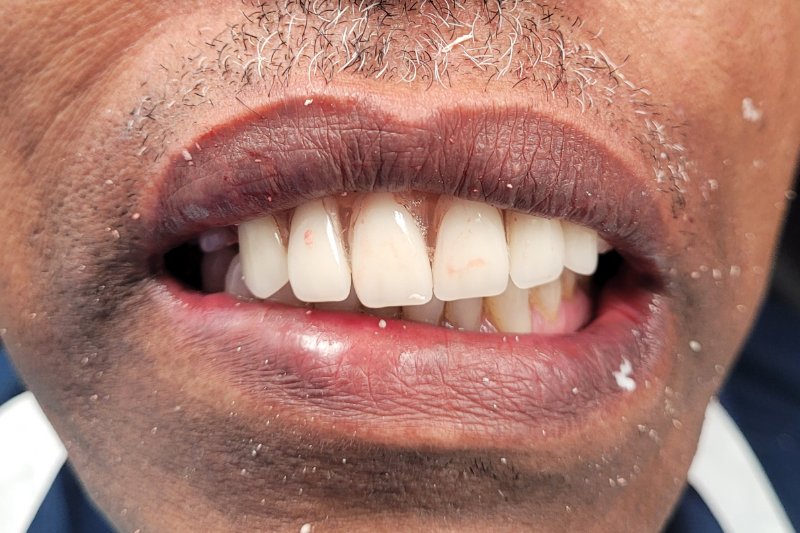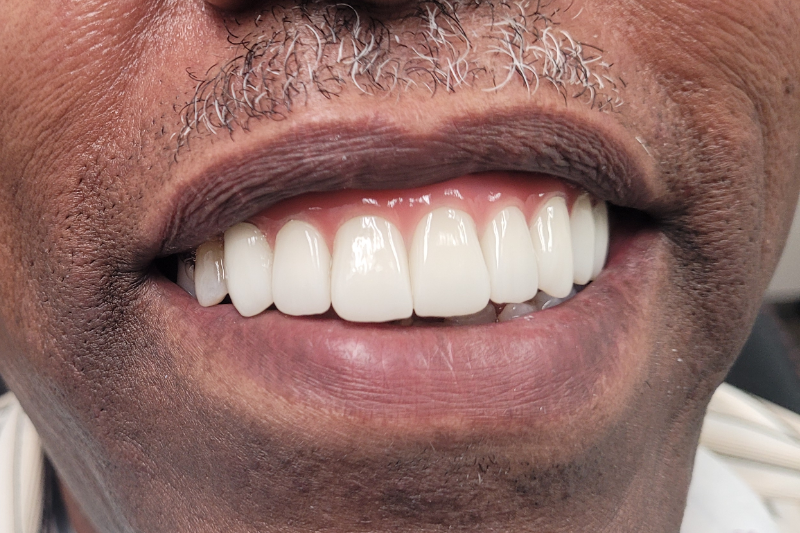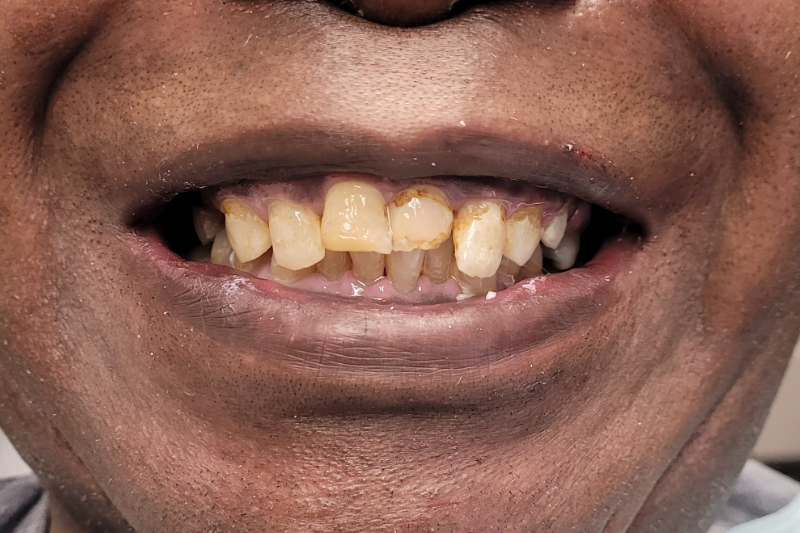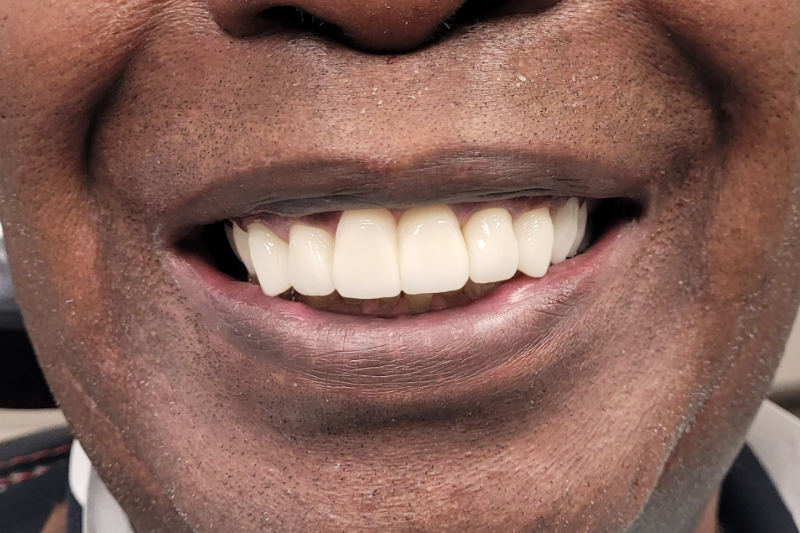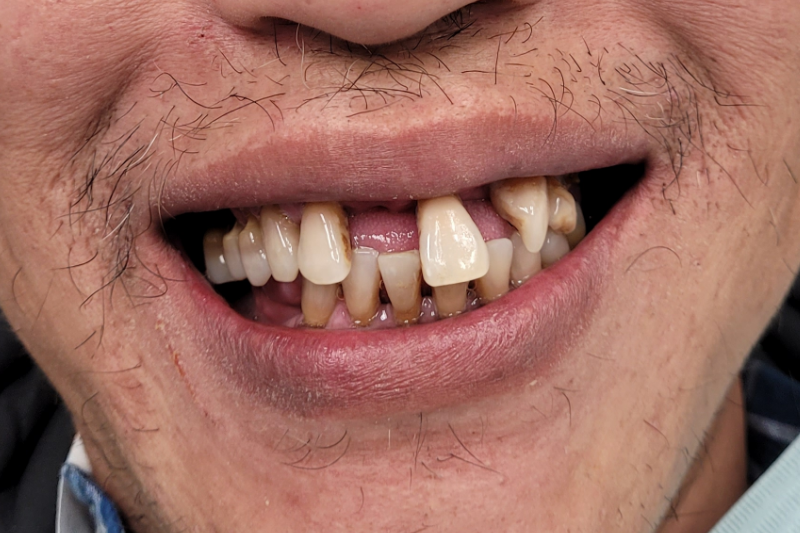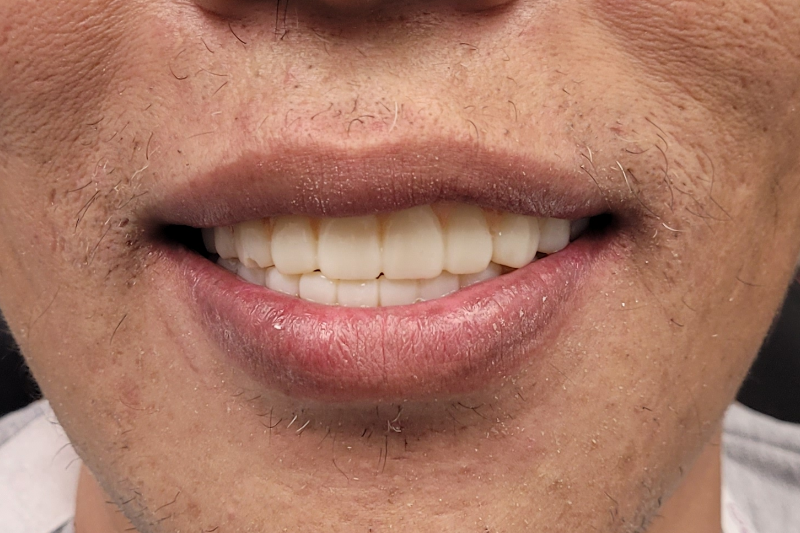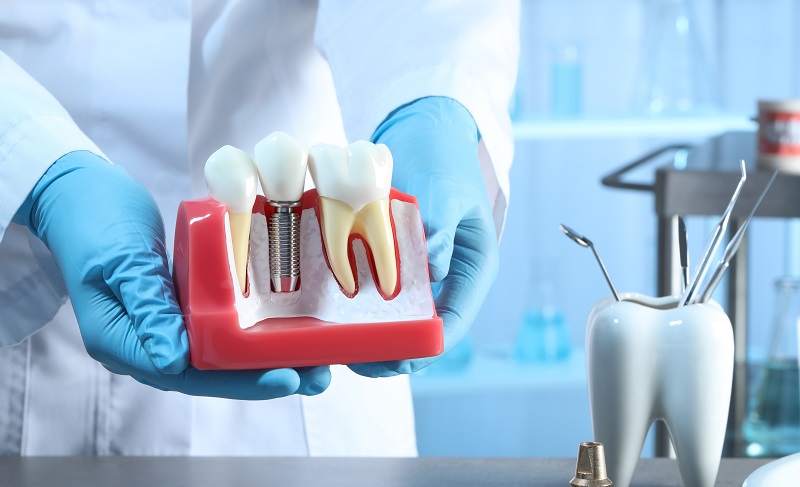
Dental implants form the foundation for the most reliable, long-lasting, and lifelike tooth replacements available.
The implant itself consists of a biocompatible titanium screw, known as a dental implant post, inserted into the jawbone. During the first few months after implantation, the post fuses with the bone, becoming as stable as the root of a natural human tooth.
Depending on the number of teeth in need of replacement, a patient might need one implant to hold a single artificial tooth, or several to anchor a bridge or denture.
Dental restorations with bone-deep implant support are fully functional, able to do anything that healthy natural teeth can do. They’re also more natural-looking and require less maintenance than surface-level options
Types of Dental Implants

ONE MISSING TOOTH
This is the simplest form of dental implant. A single implant holds a single artificial tooth, restoring your smile and your bite seamlessly and permanently.
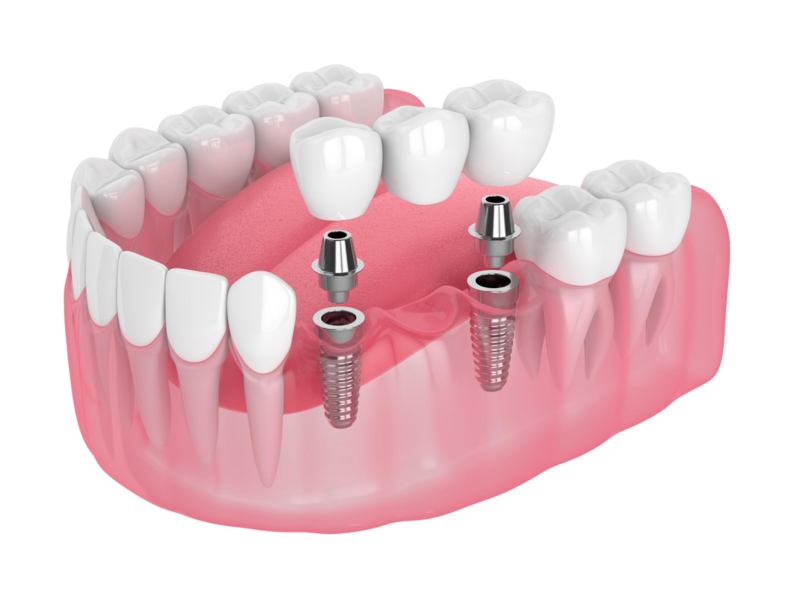
MULTIPLE MISSING TEETH
Depending on where your missing teeth are, you might not need an individual implant to replace each one. A few implants can support a bridge of artificial teeth filling in a larger gap.
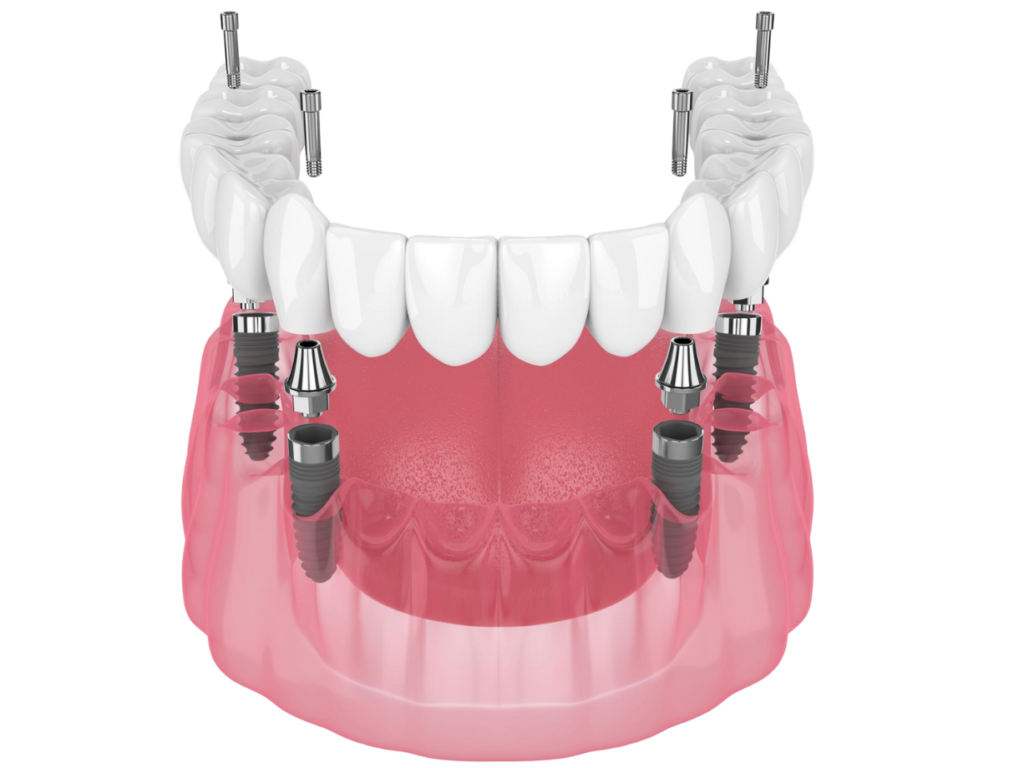
ALL-ON-4®
With just four implants, All-on-4® dental implants efficiently support an entire jaw of teeth, ideal for total tooth loss or severe decay, usually completed in one day.
SNAP-IN DENTURES VS. ALL-ON-4® IMPLANTS
Snap-in dentures and All-on-4® are both methods of supporting a complete set of teeth using dental implants. The key difference is that snap-in dentures literally “snap” into place on top of the implants and can be removed at any time, whereas All-on-4® dental prostheses are permanently attached.
Affordable, flexible, and transparent payment options

During your free consultation at the Arvada Implants Center, we’ll take a 3D CT scan of your mouth, go over your treatment options, and work with you to build a plan that fits your goals.
We’ll be thorough and completely honest with you about the cost, check in with your insurance to make sure you’re getting the best deal, and work out a financing schedule that fits your budget.
You won’t have to worry about getting unexpected bills months later, for hidden fees or third-party services.
Dental Implants Benefits
Feel and function.
Health benefits.
Maintenance.
Appearance.
Permanence.
Why Arvada Implants and Cosmetic Dentistry?
Over the past 15 years, the Arvada Implants Center has helped more than 150,000 people regain their ability to eat, talk, and smile with comfort. We’re honored by the level of trust our patients place in us, and credit it to:

Before and After
See how Dr. Tariq Sawaqed has helped his patients achieve beautiful smiles through state-of-the-art restorative and cosmetic dentistry. To witness such a transformation in yourself, contact our office and book a complimentary consultation.
Frequently Asked Questions
Typically, a single dental implant costs $1800 before insurance. This includes the implant and crown, the implantation procedure, and any necessary follow-ups and adjustments. The initial evaluation appointment is free and carries no obligation.
Factors that may increase the final cost of an implant include:
- Extraction of existing, non-viable teeth.
- Inadequate bone height, necessitating bone grafts before the implant can be placed.
- Need for sedation, in addition to standard local anesthetic.
- Unusual requests for the prosthetic design, such as replacing natural-looking crowns with gold ones.
An implant procedure accompanied by an extraction and bone graft will carry a pre-insurance cost closer to $2,500.
While that might seem expensive compared with other tooth replacement options, an implant’s durability and lack of maintenance costs can actually make it the most economical option over the course of a lifetime.
In contrast, dentures and bridges not mounted on implants typically require repair or even replacement every 5-10 years, even with gentle use.
The ideal candidate for dental implants is in good general health, with healthy gums and minimal bone loss in the jaw, so that the implant can be anchored securely.
Even if that doesn’t describe you right now, dental implants might still be within reach for you, with some preliminary care to restore your gums and jaw. Advancements in bone grafting technology and techniques have made it possible to reverse many cases of bone loss that would once have been disqualifying.
Smoking and some specific health issues, including diabetes or leukemia, can greatly increase your risk of complications after implant surgery. It’s important to be honest in your consultation, so that you and the doctor can make an informed treatment plan that maximizes your chance of a smooth recovery.
This depends heavily on your insurance policy. Dental implants are often misunderstood and miscategorized as a purely cosmetic procedure, so some policies do not cover them. Others will cover or partially cover certain steps, such as artificial tooth placement, while denying equally necessary steps, such as bone grafting.
The Arvada Implants and Cosmetic Dentistry team can help you decipher the terms of your policy. We’ll also contact your insurance company directly, to make sure you’re getting the coverage you’re owed.
Before the procedure, you will be given a local anesthetic to numb the area. You should not feel any pain while the implant is being placed, though you may feel some pressure. After the procedure, when the numbness wears off, you will most likely experience some aching and swelling around the site of the new implant, lasting several days. We will prescribe medication to help with pain management during the healing process. Once a dental implant has fully healed, it is generally the most comfortable type of dental prosthesis to use.
A bridge is a dental prosthesis designed to replace one missing tooth, or multiple adjacent missing teeth. It can be anchored to the healthy teeth on either side of the gap, or to the jawbone via two or more dental implants.
A single dental implant can also be used replace an individual missing tooth, without the need for a bridge.
In any situation where a dental implant is one of multiple viable options, the implant will typically provide the most long-lasting and real-feeling results.
Ready to make a change?
Take the first step today!
Our friendly staff will help you understand your dental treatment options and provide a clear price quote for your entire dental implant, denture or general treatment.



